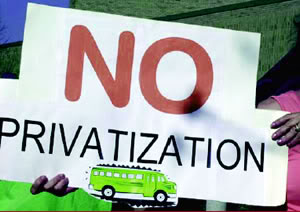Small towns love their public schools. And despite hard times and reduced state aid, taxpayers have been digging deep to sustain the programs and retain the teachers that make their schools supportive learning environments.
But the financial challenge is increasing as privately run charter schools siphon off badly needed public funds. Little schools are particularly vulnerable because, with limited enrollment, their per-pupil costs appear high, which drives up charter school tuition to devastating levels.*
Pelham, Massachusetts (population 1,440), tucked in the northeast corner of Hampshire County, is facing charter tuition costs of almost $21,000 per student (minus some short-term reimbursement). Just four charter students are taking almost 40 percent of the town’s entire state education aid this year. In nearby Whately, the impact is similar.
Leverett (population 1,670) is also losing substantial state aid to charter schools. This year the elementary school was forced to eliminate its “much beloved” Spanish program, says town finance committee member Nancy Grossman. Next year, she worries, the school committee may be forced to cut another important offering.
“The Finance Committee is asking all town departments to submit zero-increase budgets, but we have no control over charter school costs. They can just go up and up, ” she says.
Grossman and Pelham activist Richard Seelig have not passively accepted this financial injustice. In recent months, they have organized a community forum on charter schools, met with journalists, published op-eds, and, generally, stimulated debate that has rippled far beyond the borders of their western Massachusetts towns. They even caught the attention of the right-wing Pioneer Institute, staunch supporters of privatization who recently attacked Grossman and Seelig’s reform efforts in the Boston media.
The attack has only strengthened their resolve. “The more I’ve learned about the funding of charter schools, the more blatantly unfair it seems,” says Seelig, a retired high school math teacher. “The current funding formula is a dishonest way to shift costs onto local taxpayers without their consent.”
Adds Grossman, “Funding for charter schools (now $300 million a year) should be a line item in the state budget, so the state is forced to grapple with how to pay for them, rather than forcing the cost on towns that have no say on how the schools are run and, frankly, need every penny to fund their existing schools properly, especially in these times of decreased state aid.”
Instead of labeling public schools as “failing” or bashing teachers, policy makers should be addressing issues of poverty and making neighborhoods safer, says Grossman. “Let’s put our resources into strengthening true, community-based public schools that have been the workhorses of our universal education system, instead of diverting funds to the latest legislative favorite child – charter schools.”
Two activists in two small towns far from Beacon Hill are helping shape the education debate across the Commonwealth, inspiring parents and elected officials to stand up for schools that are open to all children and truly accountable to their communities. How long can the legislature, Governor Patrick and Secretary of Education Paul Reville ignore their thoughtful concerns?
Suzanne C. Mann is an education activist and a CPS member.
______________________________________________________________________________________
*Charter school tuition rates are based on the average amount spent per pupil in the sending public school district. Payments to charter schools are taken “off the top” of the state aid to the local public schools, however strapped for funds the district may be. The community and the elected school committee have no say over the matter. –Editors
[To return to The Backpack, close browser page.]


